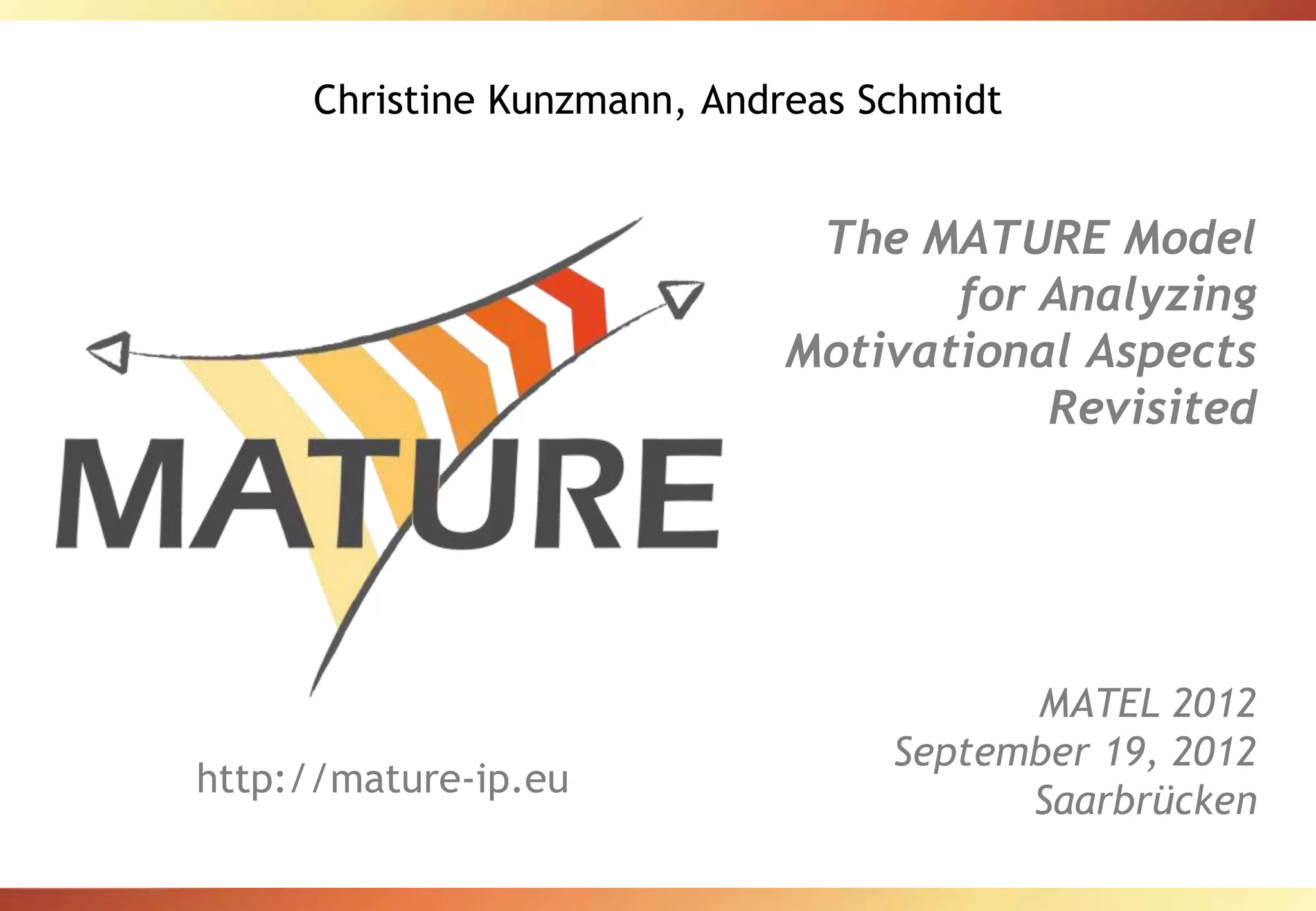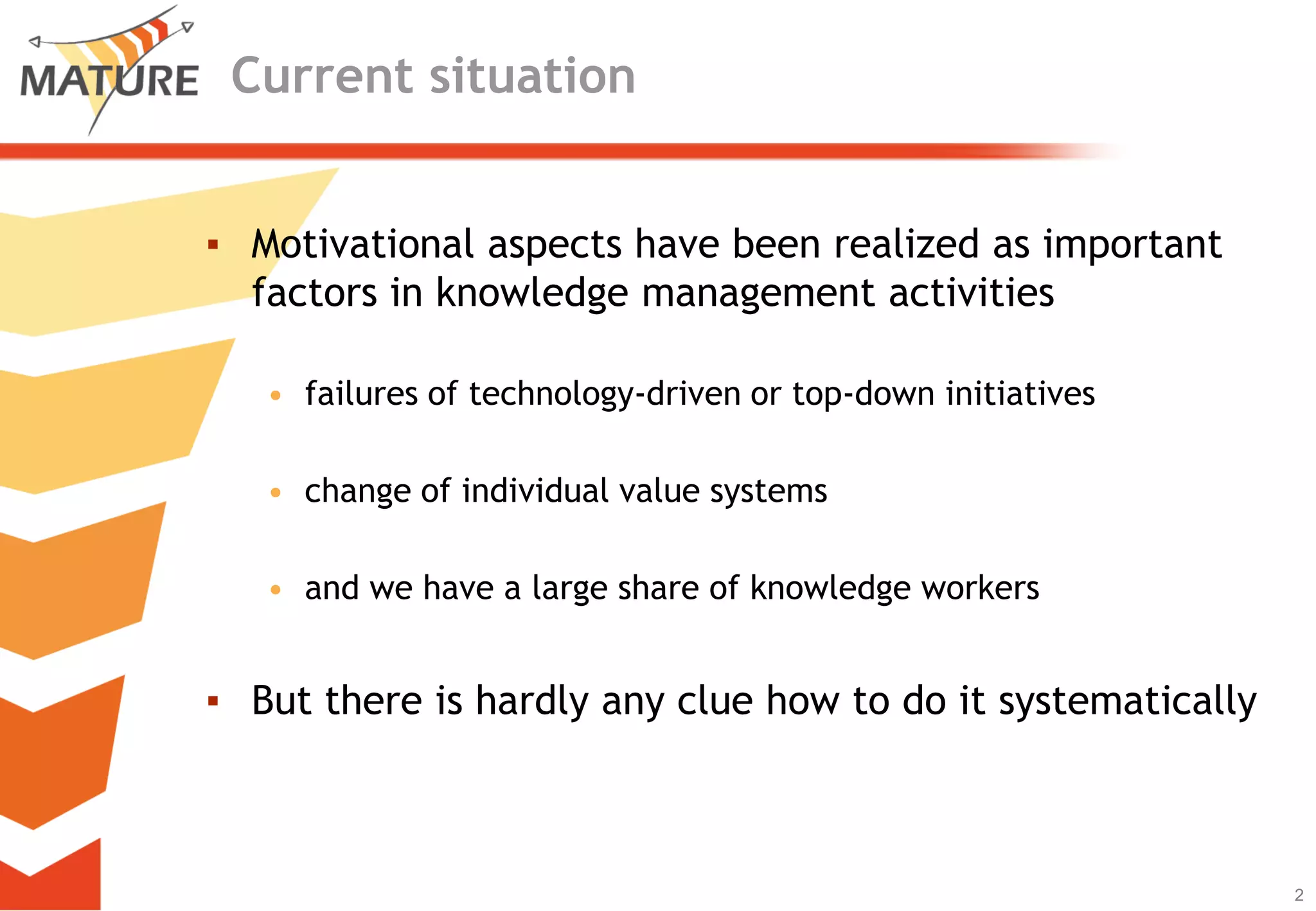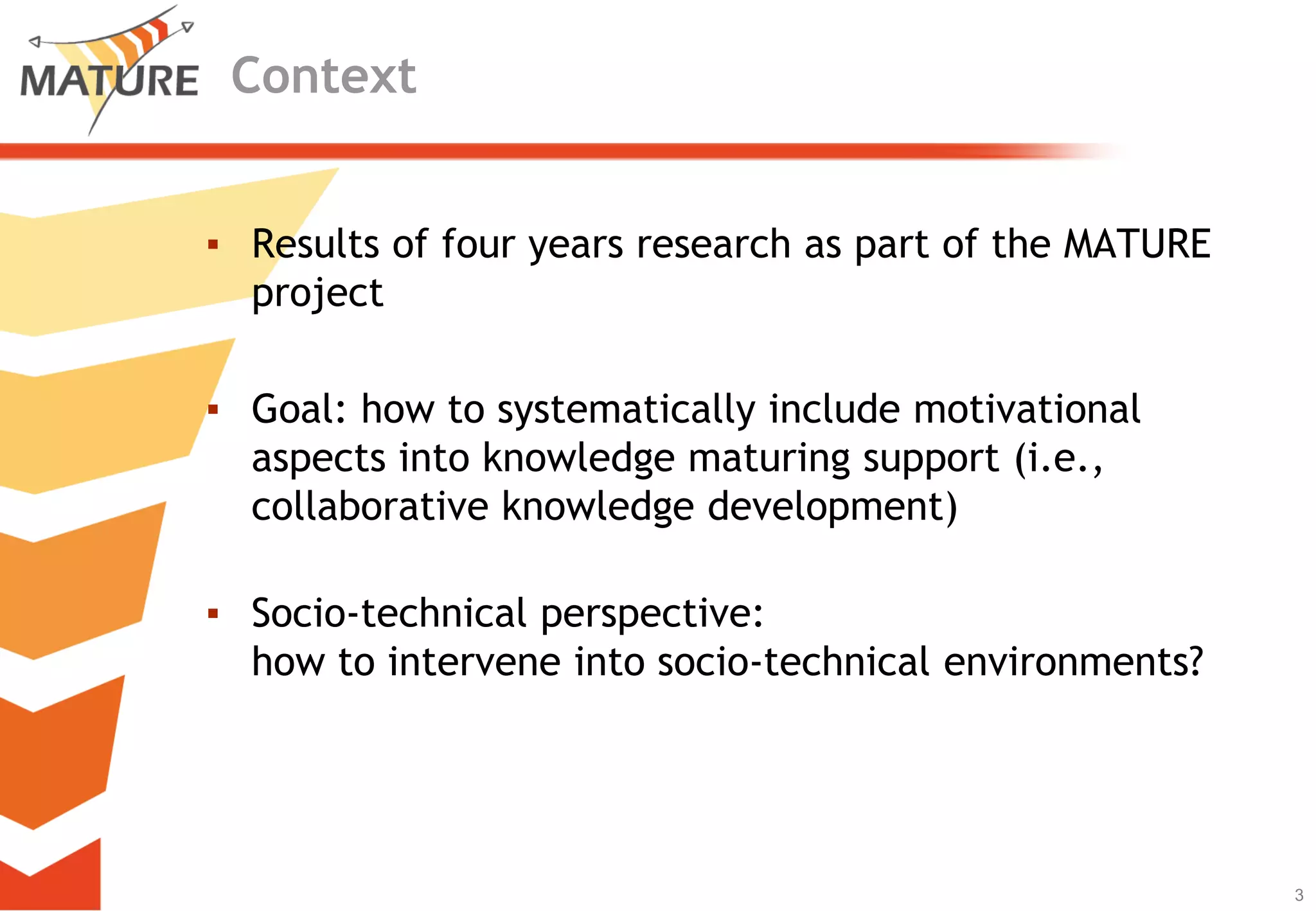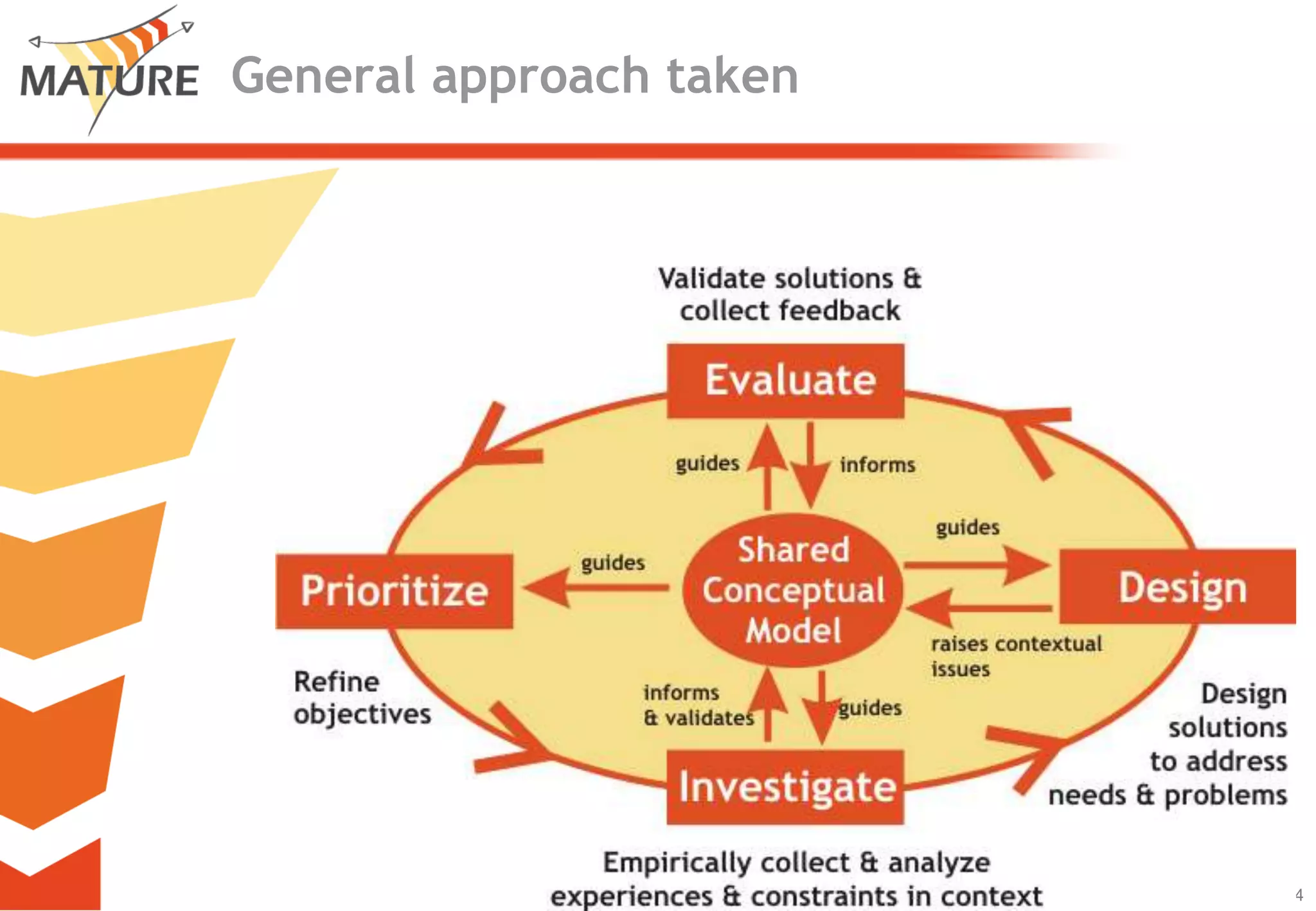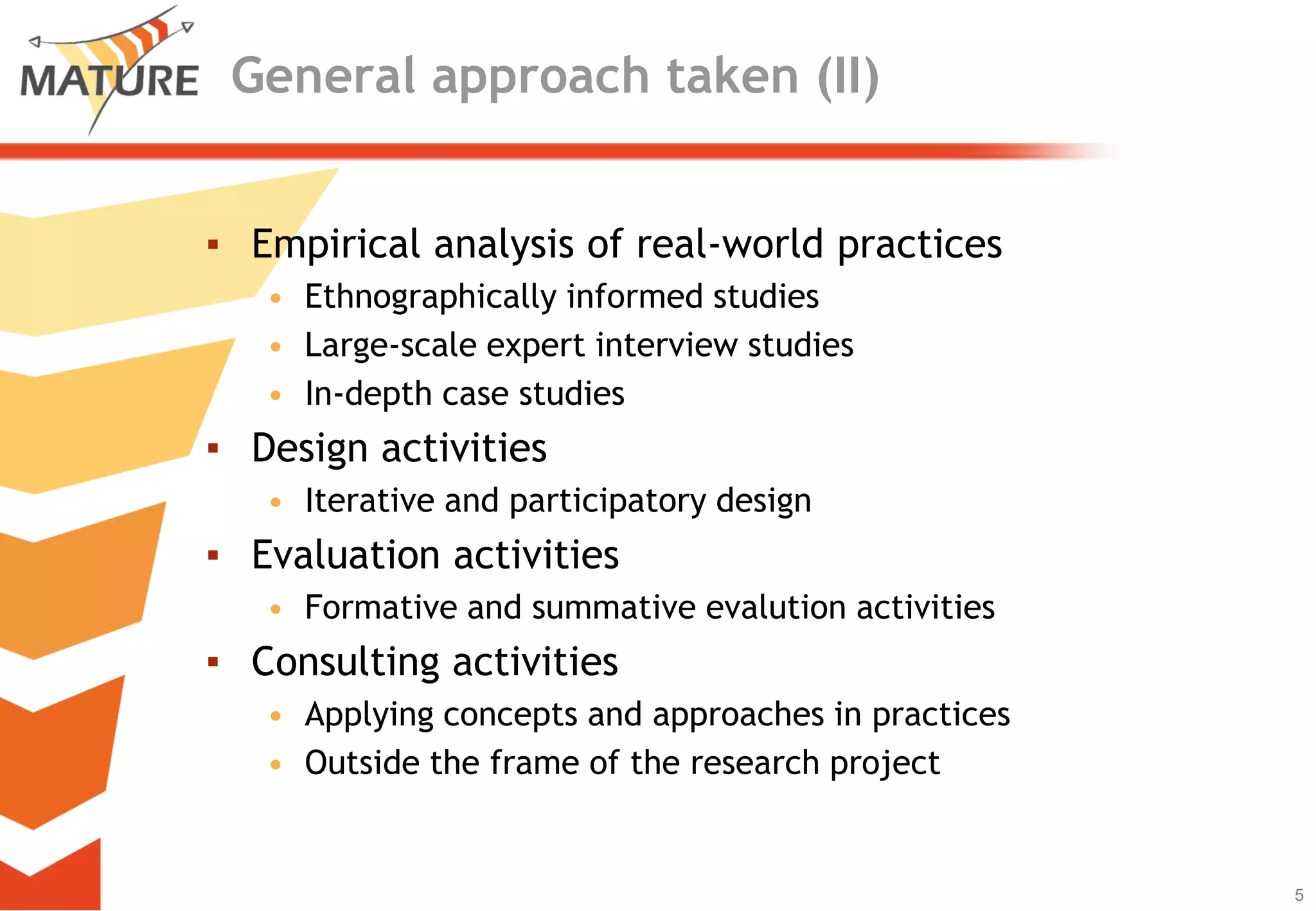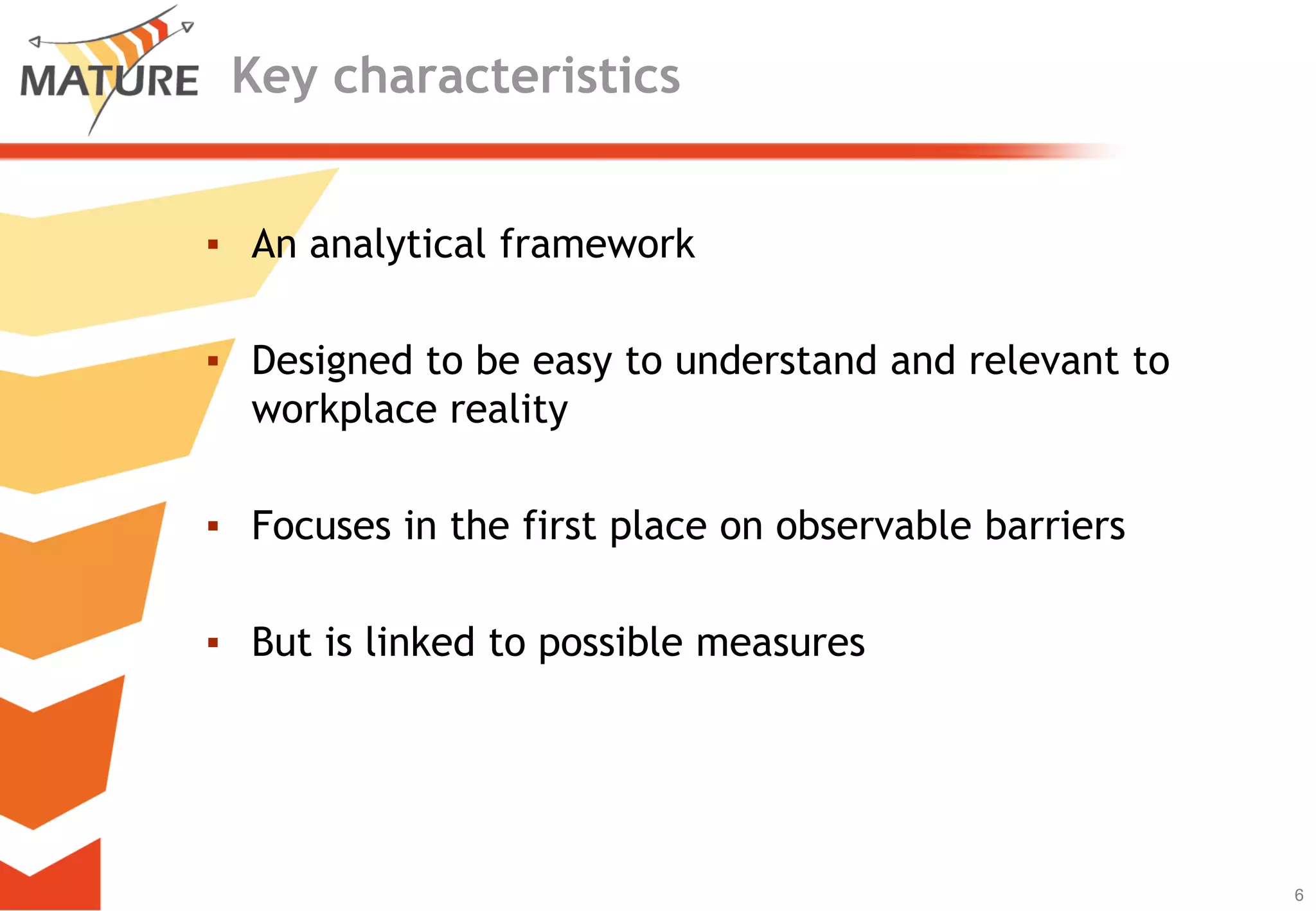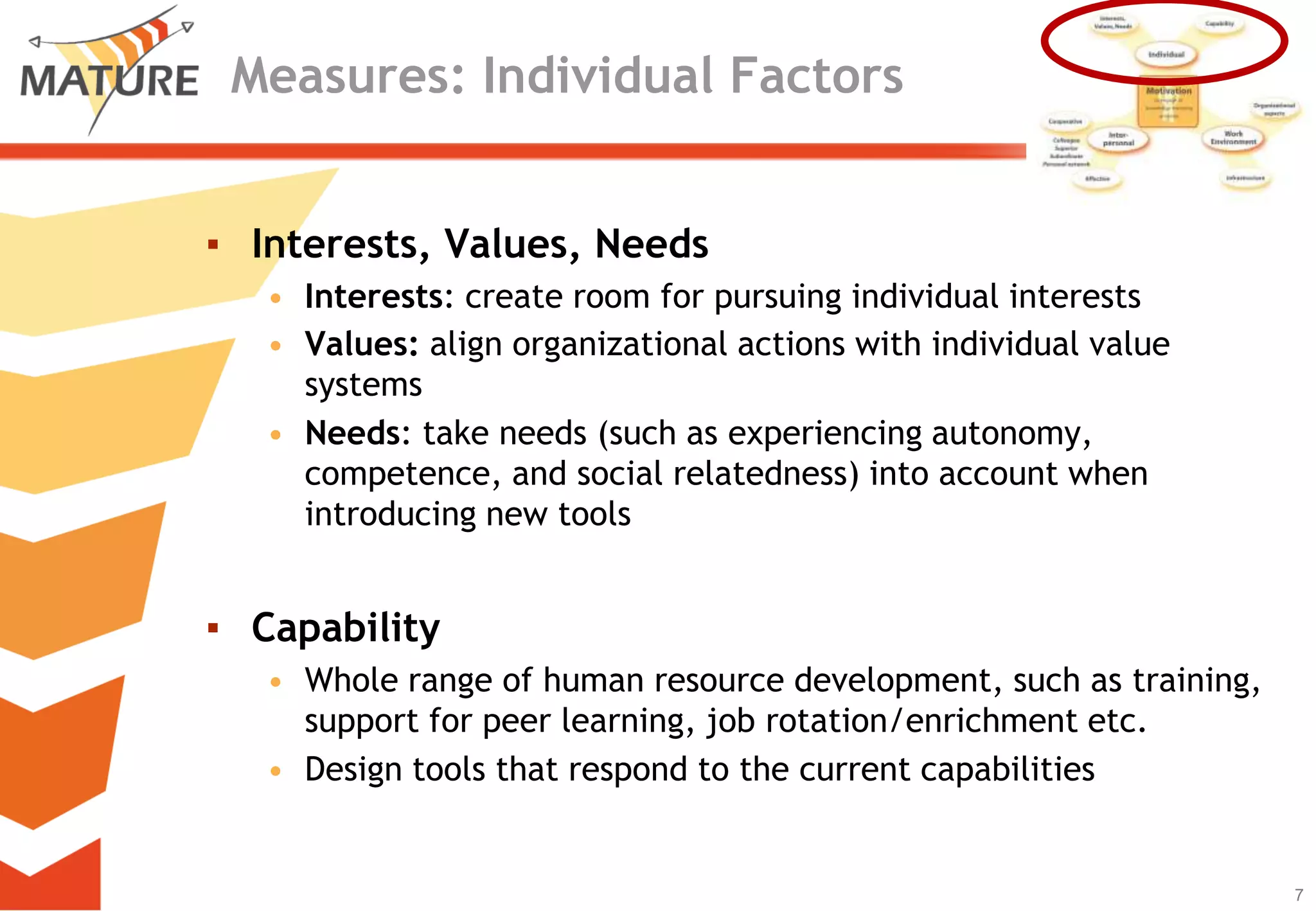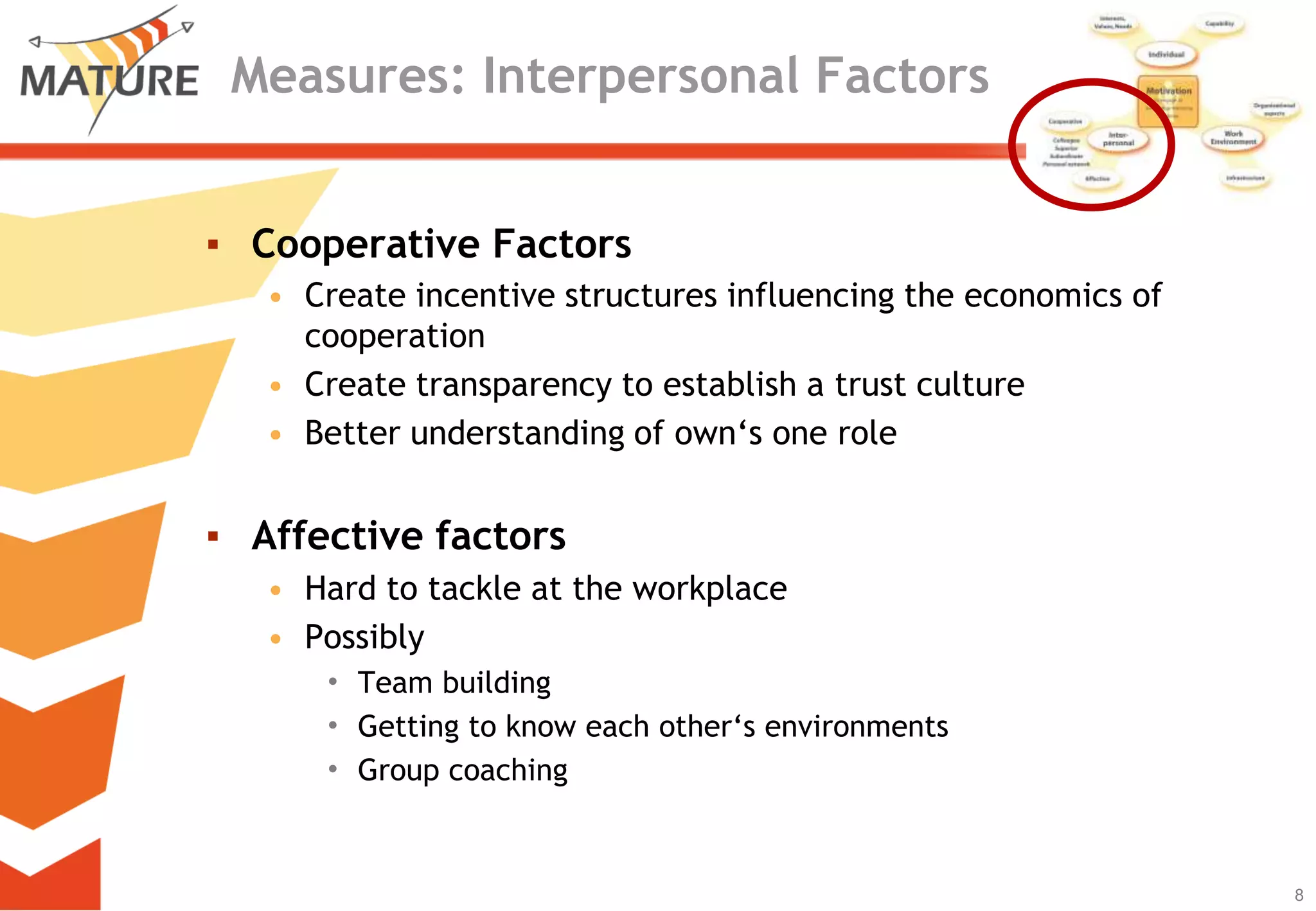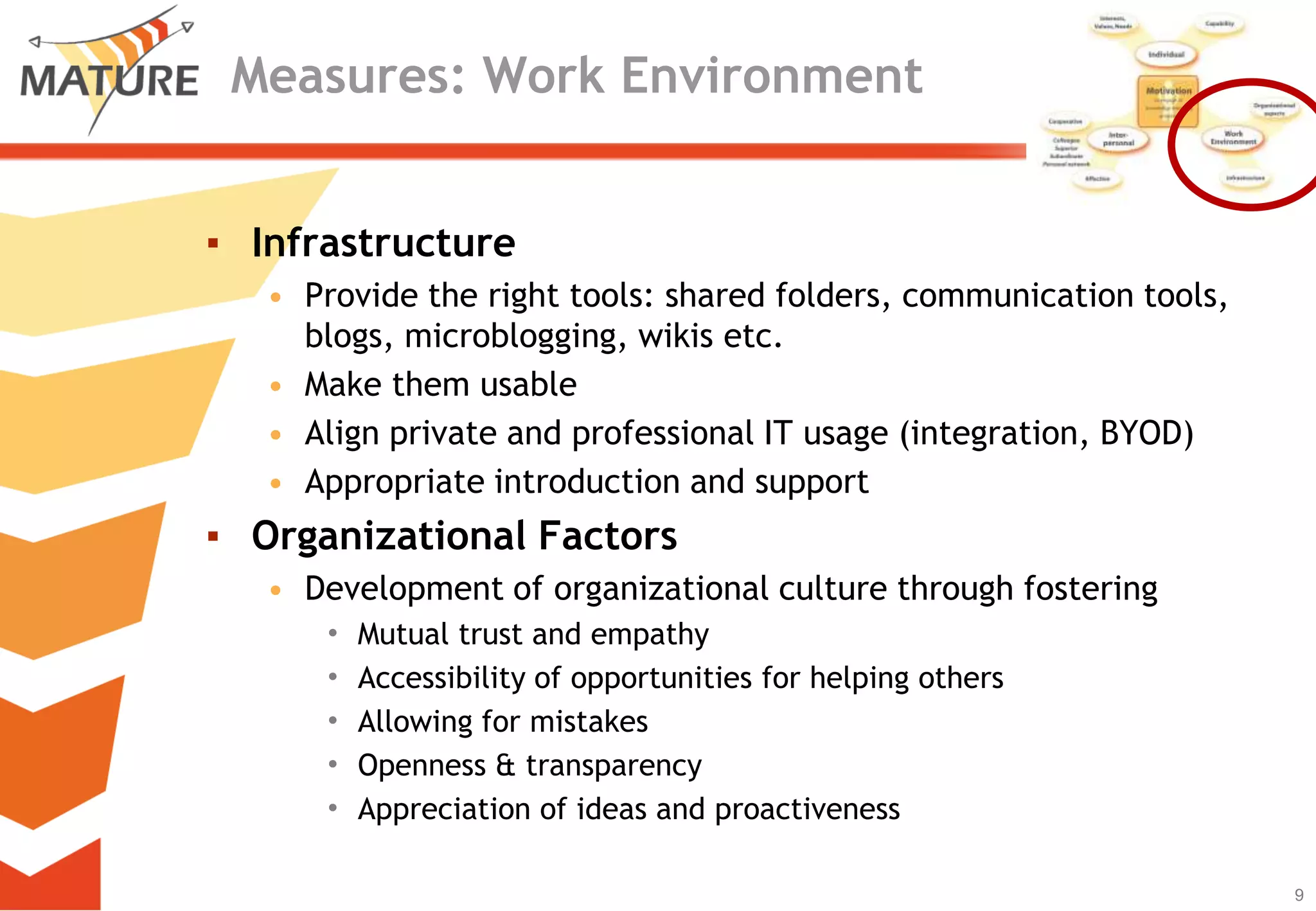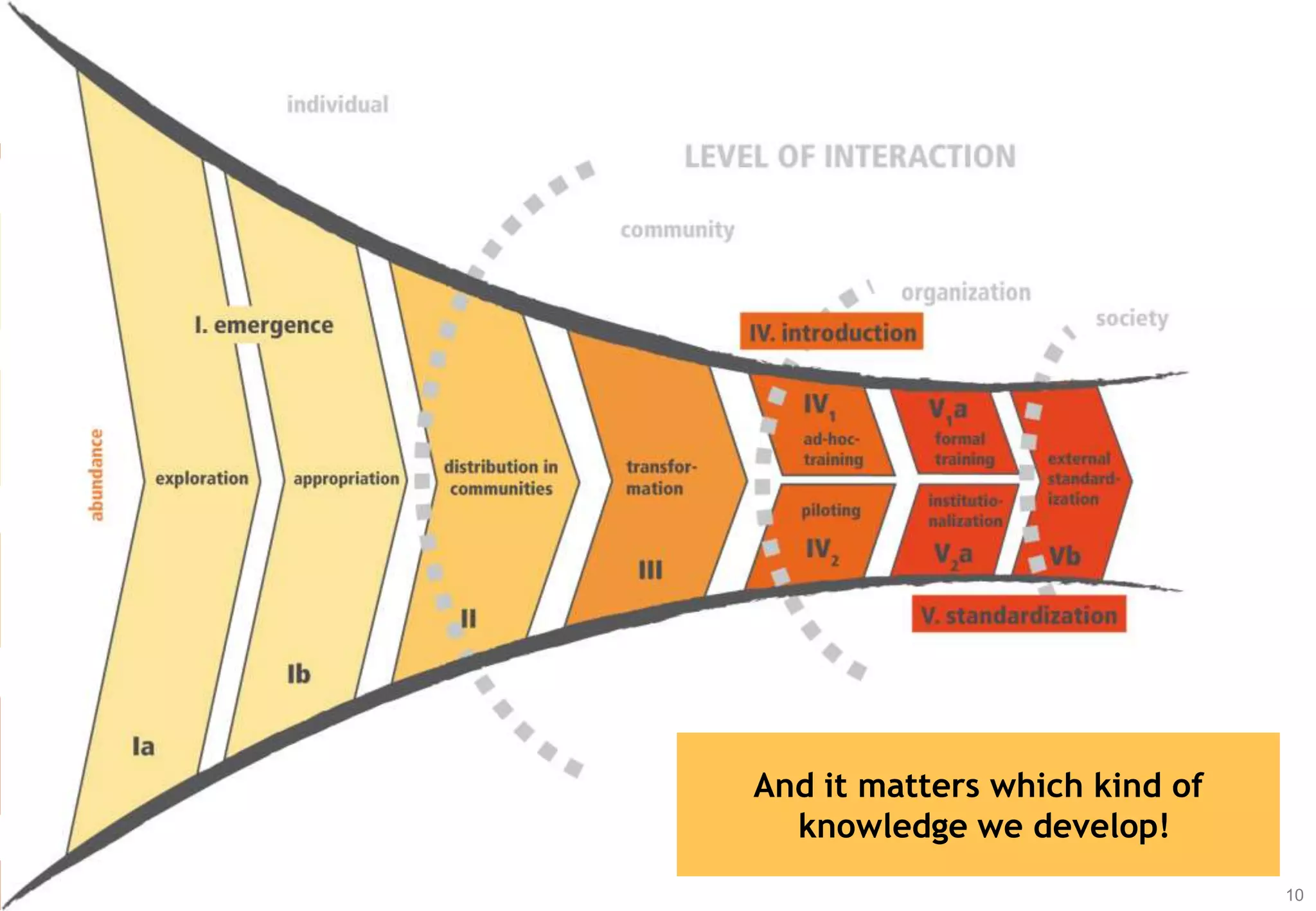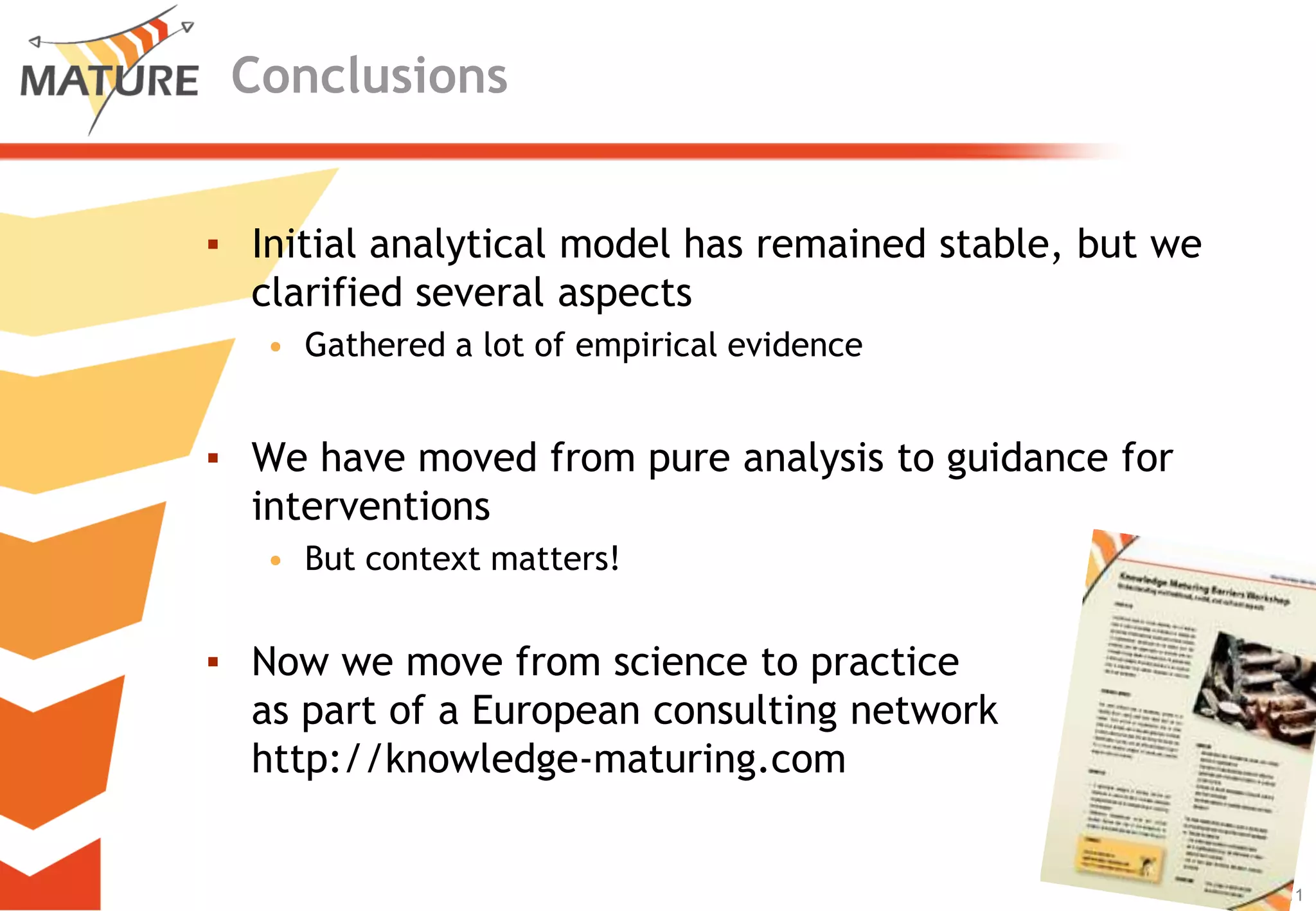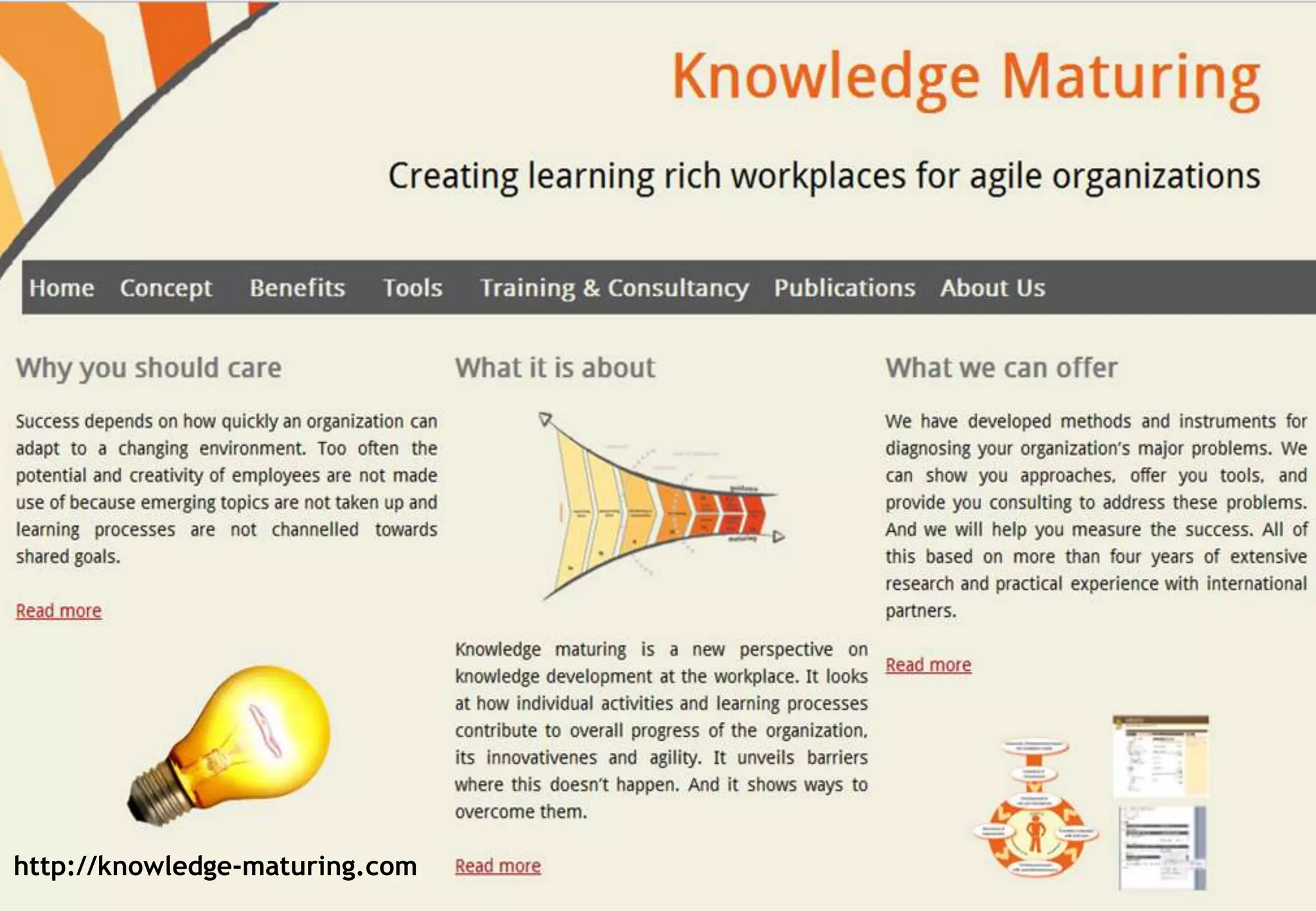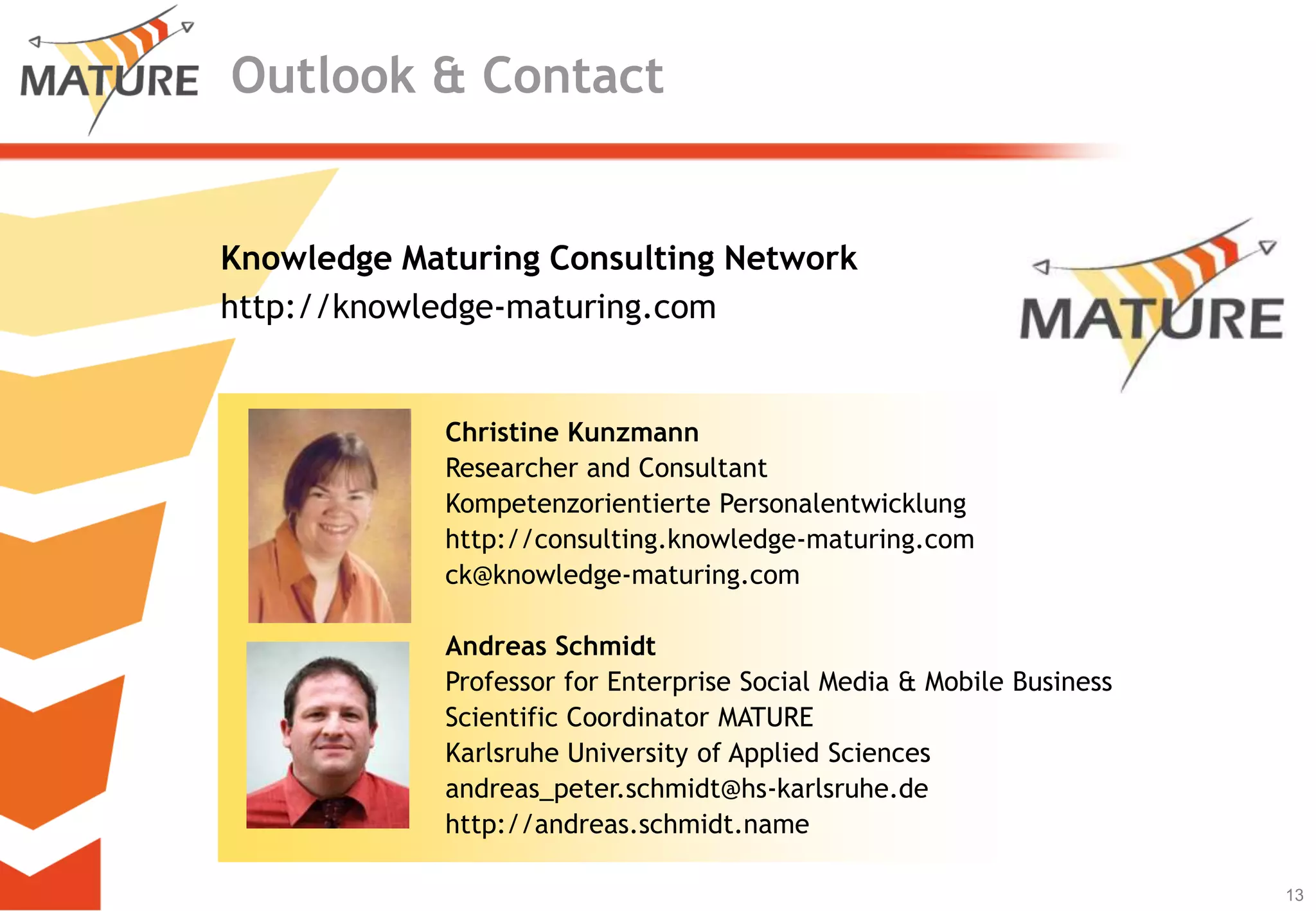The document discusses the MATURE model for analyzing motivational aspects in knowledge management. It was developed over 4 years of research to systematically include motivational factors. The model takes a socio-technical perspective and was informed by empirical studies. It focuses on observable barriers and links them to potential measures. The model analyzes individual, interpersonal, and work environment factors that can influence motivation. Measures are proposed at each level, like aligning tools with interests/values, improving cooperation, and ensuring the right infrastructure. The model provides guidance for interventions to improve knowledge development practices. The researchers are now applying the model through a consulting network.
